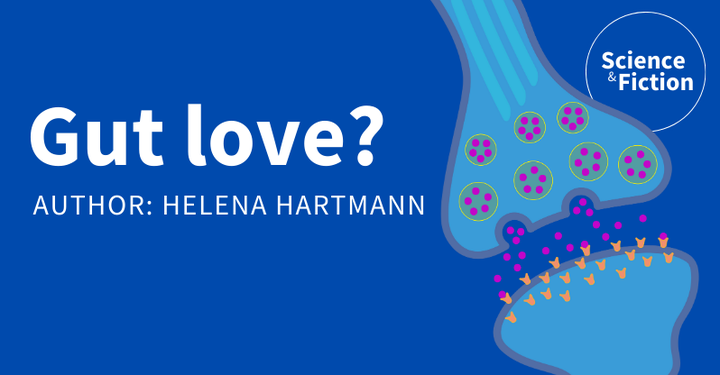
Have you thought of love as an all-or-nothing reaction?
Content warnings
Sexual desire and preferences
The short story
The woman didn’t remember how or why she fell in love with the man. There was something about him she was intensely and fiercely attracted to, in an animal-like way. One of the hundreds of days before, when they’d been just friends and nothing else, she had looked at him and a feeling like a lightning had struck her. He had smelled like nothing she’d ever smelled before. Like freshly picked lavender she loved to collect in the summer months in the field behind her house combined with a warm summer day and ice-cream sundays. She had stopped right there and kissed him. He had tasted like nothing she’d ever tasted before. Like a sweet, sugary Christmas treat, full of cinnamon, cloves and cardamom, combined with the savoury saltiness of her favorite dish, lasagna. She had pressed her body closely against him then. He felt like nothing she ever felt before. Like jumping into freshly made bedding after a hot shower, combined with a thousand stars touching her.
And he had, for some strange unexplained reason, felt the same way, exactly at that same moment, when she had stopped and looked in his eyes. What are the odds of that? As if some higher force had decided that it was now time for them to start the rest of their life together. It had not always been this way. It had taken some time to develop, like a well-brewed tea, a slow-cooked roast, or a long-time book. Or for another reason she had no clue about.
But someone knew. The little cells in her body and brain had at some point received a message from the gut bacteria further down. First one message, then hundreds of messages, action potentials, swarming all over her nervous system like little happy alarm signals, sending her body in a state of attraction and love towards one person, and one person only. Him. All signs pointing in one direction. His. Sending all the neurotransmitters wreaking havoc and flushing her brain. This in turn had triggered his chemicals, who shortly followed, reacting to hers through a second surge of messages. It was neither similarities nor opposites that attracted, but the two guts deciding, jointly and unanimously, that it was now time for some action. Literally.
But that had been a long time ago. “I don’t know, why”, she told him. I don’t feel the same anymore. I don’t feel the same towards you. You smell different. You taste different. You feel different.” She left him then, together with her bodily chemicals who were now sending the opposite message, and who, unbeknownst to her, were already working overtime to get everything ready. Ready for her to fall in love all over again. When that will happen? Only the gut knows.
The paper
Diamond, L.M. Sexual fluidity in male and females. Current Sexual Health Reports, 8, 249–256 (2016). https://doi.org/10.1007/s11930-016-0092-z
Connection between story and paper
The paper talks about the concept of sexual fluidity, which describes sexuality, desires, and sexual attraction as being fluid rather than fixed categories such as hetero- and homosexual. The author raises some examples why this fluidity theory could be valid. For example, she says that there are many people who are attracted to both men and women, that many people can change their views of sexuality over their lifespan, and that, with increasing acceptance and visibility, more and more people openly disclose to be attracted to the same sex. The fictional short story describes a situation where somebody falls in love and is attracted to one person, steered by the chemicals in the brain. Once those chemicals decide that it’s over, it also is. Many animals actually communicate sexual desires and preferences via so called pheromones. It makes you think how much of what we think and feel is actually influenced or even steered by our body and brain.
How do you think love comes and goes?